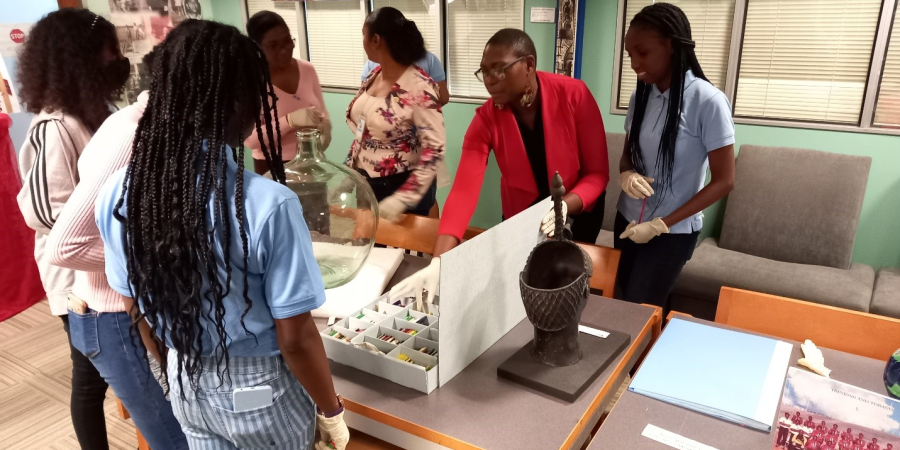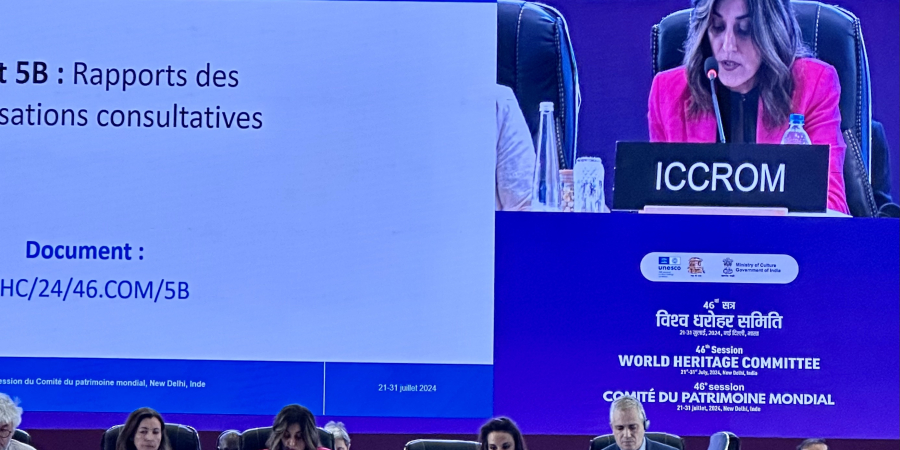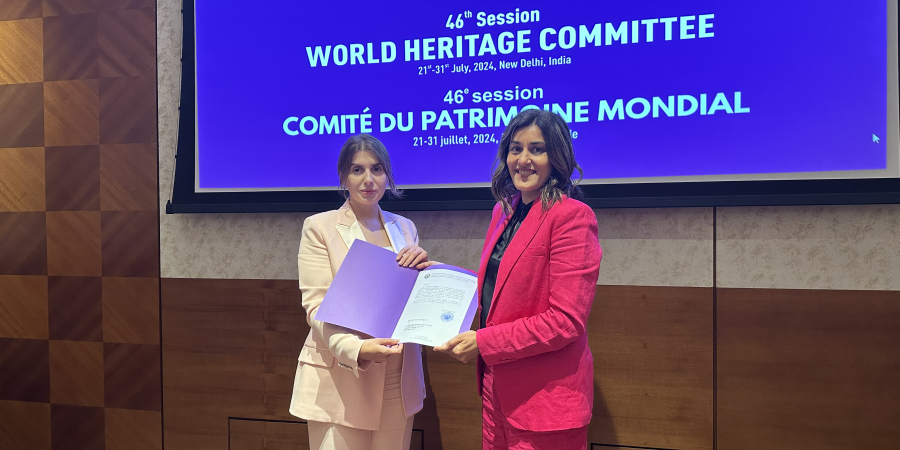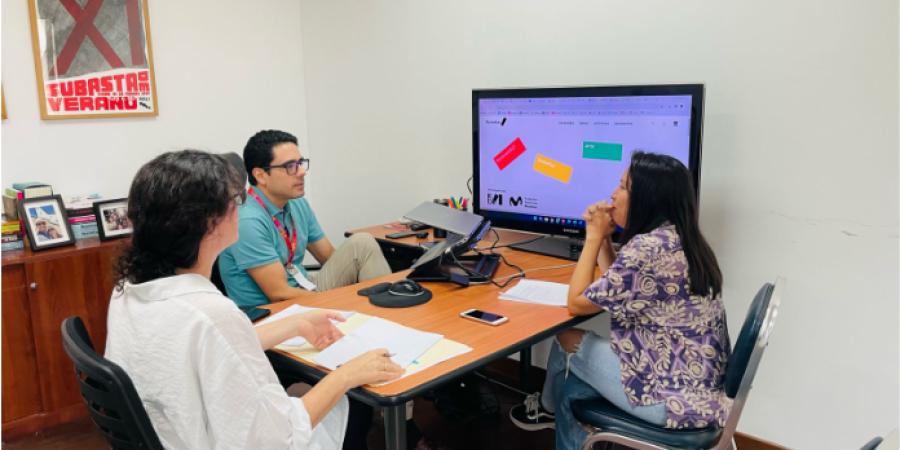Featured

From Argentina to Trinidad and Tobago: Celebrating Our Collections Matter Field Projects across continents
'Leaving no one behind' is a core value embedded in the UN Agenda 2030. This principle is powerfully embodied in the Our Collections Matter (OCM) initiative. This forward-looking online capacity-building programme helps break geographical barriers, enabling organizations from around the World to delve deep into learning about Sustainable Development Goals (SDGs) and consolidate their contribution...

ICCROM at the 46th Session of the World Heritage Committee
In July 2024, India hosted the 46th session of the World Heritage Committee from 21 to 31 July at the Bharat Mandapam Convention Center in New Delhi. This event is of great importance to the global heritage community as it provides a forum to discuss international cooperation for the protection of heritage places, the state of conservation of listed sites and examine new nominations to the World...

ICCROM at the 46th Session of the World Heritage Committee
In July 2024, India hosted the 46th session of the World Heritage Committee from 21 to 31 July at the Bharat Mandapam Convention Center in New Delhi. This event is of great importance to the global heritage community as it provides a forum to discuss international cooperation for the protection of heritage places, the state of conservation of listed sites and examine new nominations to the World...

ICCROM at the 46th Session of the World Heritage Committee
In July 2024, India hosted the 46th session of the World Heritage Committee from 21 to 31 July at the Bharat Mandapam Convention Center in New Delhi. This event is of great importance to the global heritage community as it provides a forum to discuss international cooperation for the protection of heritage places, the state of conservation of listed sites and examine new nominations to the World...

Celebrating Uzbekistan, Our Newest Member State
ICCROM is proud to announce that Uzbekistan has joined as our 138th Member State. This milestone strengthens our commitment to heritage conservation and expands ICCROM’s global footprint and efforts to preserve and protect cultural heritage in all its forms worldwide for a lasting impact.

Celebrating Uzbekistan, Our Newest Member State
ICCROM is proud to announce that Uzbekistan has joined as our 138th Member State. This milestone strengthens our commitment to heritage conservation and expands ICCROM’s global footprint and efforts to preserve and protect cultural heritage in all its forms worldwide for a lasting impact.

Celebrating Uzbekistan, Our Newest Member State
ICCROM is proud to announce that Uzbekistan has joined as our 138th Member State. This milestone strengthens our commitment to heritage conservation and expands ICCROM’s global footprint and efforts to preserve and protect cultural heritage in all its forms worldwide for a lasting impact.

Celebrating Uzbekistan, Our Newest Member State
ICCROM is proud to announce that Uzbekistan has joined as our 138th Member State. This milestone strengthens our commitment to heritage conservation and expands ICCROM’s global footprint and efforts to preserve and protect cultural heritage in all its forms worldwide for a lasting impact.

ICCROM's first course on Sustainable Digital Heritage empowers institutions to build projects centering user needs
Since 2021, the Sustaining Digital Heritage (SDH) programme, has set out with partners AVP and Netherlands Institute for Sound and Vision (NISV) to understand the preservation and access needs for digital heritage worldwide and to build a self-sustaining network of digital heritage leaders. The broader aim of the programme is to enhance the storytelling potential of digital heritage, as well as...

ICCROM's first course on Sustainable Digital Heritage empowers institutions to build projects centering user needs
Since 2021, the Sustaining Digital Heritage (SDH) programme, has set out with partners AVP and Netherlands Institute for Sound and Vision (NISV) to understand the preservation and access needs for digital heritage worldwide and to build a self-sustaining network of digital heritage leaders. The broader aim of the programme is to enhance the storytelling potential of digital heritage, as well as...
